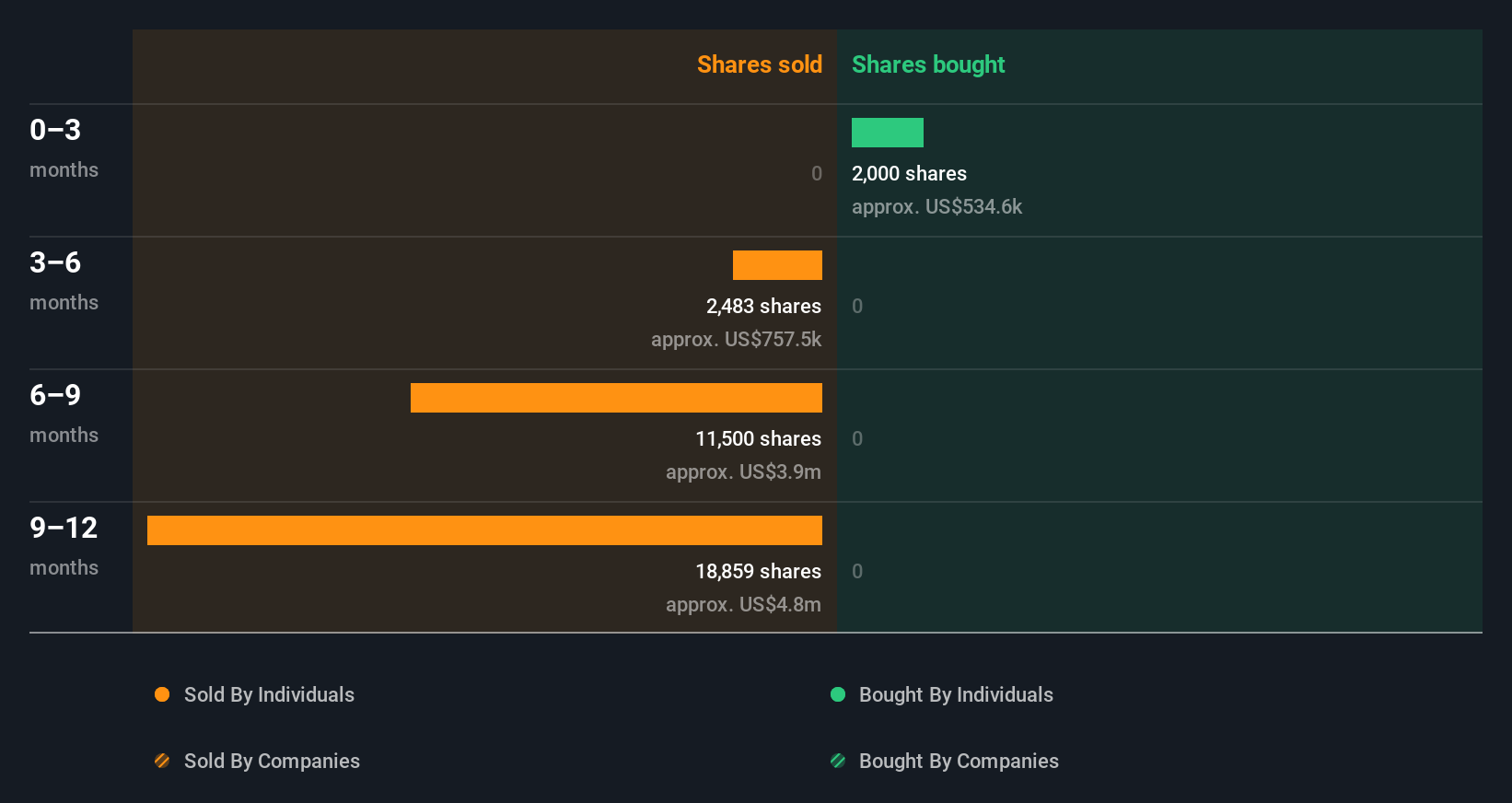
The fact that multiple Piper Sandler Companies (NYSE:PIPR) insiders offloaded a considerable amount of shares over the past year could have raised some eyebrows amongst investors. Knowing whether insiders are buying is usually more helpful when evaluating insider transactions, as insider selling can have various explanations. However, when multiple insiders sell stock over a specific duration, shareholders should take notice as that could possibly be a red flag.
While we would never suggest that investors should base their decisions solely on what the directors of a company have been doing, we do think it is perfectly logical to keep tabs on what insiders are doing.
Piper Sandler Companies Insider Transactions Over The Last Year
The Senior Managing Principal, Jonathan Doyle, made the biggest insider sale in the last 12 months. That single transaction was for US$3.4m worth of shares at a price of US$338 each. While we don't usually like to see insider selling, it's more concerning if the sales take place at a lower price. It's of some comfort that this sale was conducted at a price well above the current share price, which is US$254. So it is hard to draw any strong conclusion from it.
In total, Piper Sandler Companies insiders sold more than they bought over the last year. You can see a visual depiction of insider transactions (by companies and individuals) over the last 12 months, below. If you click on the chart, you can see all the individual transactions, including the share price, individual, and the date!
Check out our latest analysis for Piper Sandler Companies

I will like Piper Sandler Companies better if I see some big insider buys. While we wait, check out this free list of undervalued and small cap stocks with considerable, recent, insider buying.
Piper Sandler Companies Insiders Bought Stock Recently
Over the last three months, we've seen significant insider buying at Piper Sandler Companies. We can see that Global Co-Head of Investment Banking & Capital Markets James Baker paid US$535k for shares in the company. No-one sold. That shows some optimism about the company's future.
Insider Ownership
Another way to test the alignment between the leaders of a company and other shareholders is to look at how many shares they own. A high insider ownership often makes company leadership more mindful of shareholder interests. Piper Sandler Companies insiders own 3.0% of the company, currently worth about US$138m based on the recent share price. I like to see this level of insider ownership, because it increases the chances that management are thinking about the best interests of shareholders.
What Might The Insider Transactions At Piper Sandler Companies Tell Us?
It's certainly positive to see the recent insider purchase. However, the longer term transactions are not so encouraging. The recent buying by an insider , along with high insider ownership, suggest that Piper Sandler Companies insiders are fairly aligned, and optimistic. While it's good to be aware of what's going on with the insider's ownership and transactions, we make sure to also consider what risks are facing a stock before making any investment decision. To assist with this, we've discovered 1 warning sign that you should run your eye over to get a better picture of Piper Sandler Companies.
Of course Piper Sandler Companies may not be the best stock to buy. So you may wish to see this free collection of high quality companies.
For the purposes of this article, insiders are those individuals who report their transactions to the relevant regulatory body. We currently account for open market transactions and private dispositions of direct interests only, but not derivative transactions or indirect interests.
Have feedback on this article? Concerned about the content? Get in touch with us directly. Alternatively, email editorial-team (at) simplywallst.com.
This article by Simply Wall St is general in nature. We provide commentary based on historical data and analyst forecasts only using an unbiased methodology and our articles are not intended to be financial advice. It does not constitute a recommendation to buy or sell any stock, and does not take account of your objectives, or your financial situation. We aim to bring you long-term focused analysis driven by fundamental data. Note that our analysis may not factor in the latest price-sensitive company announcements or qualitative material. Simply Wall St has no position in any stocks mentioned.